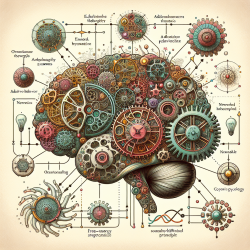Understanding the MDI
The MDI was developed to address the need for reliable and valid instruments that assess various domains of child well-being. The instrument covers five key dimensions:- Social and emotional development
- Connectedness to peers and adults at school, home, and neighborhood
- School experiences
- Physical health and well-being
- Constructive use of time after school
Key Findings and Their Implications
The research conducted to validate the MDI indicates several critical points that can be beneficial for online therapy practitioners:1. Social and Emotional Development
The MDI measures constructs such as empathy, optimism, self-concept, and satisfaction with life. High correlations between optimism, self-concept, and life satisfaction suggest that interventions focusing on boosting optimism and self-concept can significantly enhance overall life satisfaction in children.2. Connectedness
Connectedness to peers and adults is crucial for children’s well-being. The MDI findings show strong correlations between peer belonging and friendship intimacy. Practitioners can design programs that foster peer relationships and mentor connections to improve children's sense of belonging and support.3. School Experiences
The MDI includes measures of academic self-efficacy, school supportiveness, and victimization. Enhancing school supportiveness and reducing bullying can lead to better academic self-efficacy and overall school experiences. Online therapy can incorporate strategies for creating supportive school environments and addressing bullying.4. Physical Health and Well-Being
The MDI’s focus on physical health includes items on overall health, body image, and health habits. Encouraging healthy eating, adequate sleep, and physical activity can improve children's overall health, which is linked to their academic and social performance.5. Constructive Use of Time After School
The MDI assesses how children spend their time after school. Participation in organized activities is associated with better social and emotional outcomes. Practitioners can encourage involvement in after-school programs that align with children's interests and provide safe, supportive environments.Encouraging Further Research
The MDI provides a robust framework for assessing children's well-being, but it also opens avenues for further research. Practitioners are encouraged to:- Explore the predictive validity of the MDI by linking it with long-term outcomes.
- Investigate the impact of different types of interventions on the various dimensions measured by the MDI.
- Examine the role of contextual assets in promoting positive developmental outcomes.
To read the original research paper, please follow this link: Development and Validation of the Middle Years Development Instrument (MDI): Assessing Children’s Well-Being and Assets across Multiple Contexts.










